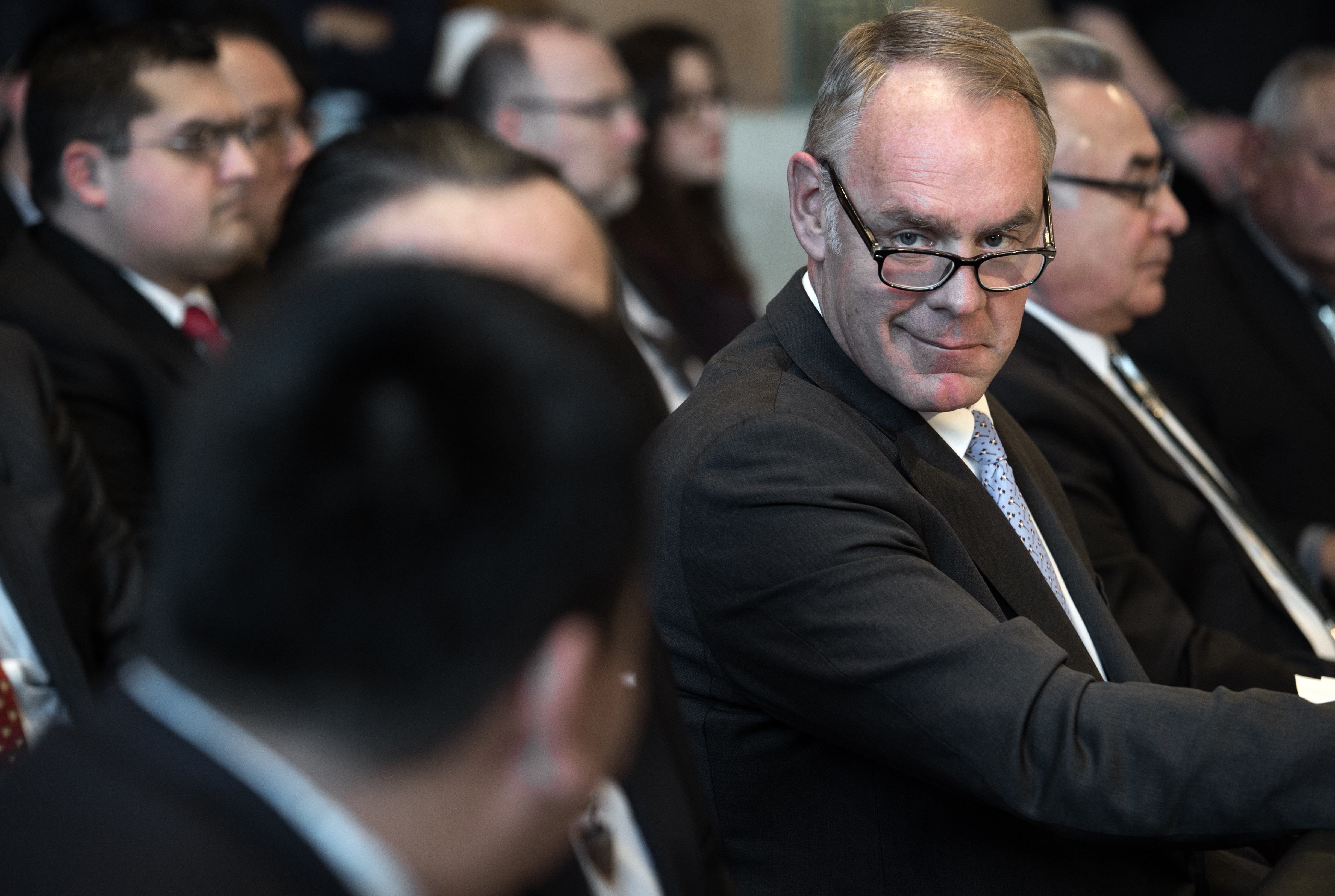On his current two-day visit to California, Interior Secretary Ryan Zinke dismissed climate change as a reason for the increasing number and growing intensity of wildfires in the state. The real issue, insisted Zinke, is the proper management of forests and making sure there aren’t too many trees in them.
“I’ve heard the climate change argument back and forth. This has nothing to do with climate change. This has to do with active forest management,” Zinke told reporters on Sunday.
According to Zinke, officials should focus more on “dead and dying timber” and the density of forests, rather than climate change, when addressing wildfires.
Zinke’s claims run contrary to forestry experts, firefighters, and scientists who are in agreement that hotter and longer summers are a primary factor contributing to record wildfires experienced in California in recent years. Their research has found that climate change is having an impact on western U.S. wildfires and that the impact will only grow.
The Interior secretary was visiting areas near Redding, California that had been devastated by the Carr Fire, which has killed 8 people and forced tens of thousands to evacuate. Last year saw the deadliest and costliest wildfires in California history. This year is expected to be even worse.
“Secretary Zinke is either being willfully ignorant or purposely deceptive. Any politician ignoring the role a warming climate plays in record-setting wildfire seasons loses all credibility as an honest broker,” Greg Zimmerman, deputy director of the Center for Western Priorities, said Monday in a statement. “Instead, Zinke is in California using an ongoing natural disaster to push an unpopular political agenda.”
Even California newspapers are taking a stand against the Trump administration’s unwillingness to acknowledge the role played by climate change in the wildfires.
“This is climate change, for real and in real time,” the Sacramento Bee wrote in a recent editorial. “We were warned that the atmospheric buildup of man-made greenhouse gas would eventually be an existential threat.”
Zinke has also used the California wildfires to criticize environmental groups. In an op-ed published last Wednesday in USA Today, Zinke attacked “radical environmentalists” for using litigation to stop the federal government from employing methods to manage forests.
He argued that fires such as the Mendocino Complex and others in California are burning hotter and more intense “due in part to hot and dry weather and in part to the fuels that overload our forests.” Zinke mentioned hotter and drier conditions across the western United States, but he did not explain how climate change is partly to blame for the worsening conditions.
I have no words that describe the loss and devastation experienced by the community. I’ve been to a lot of fires and this is just something else. We are here for you. 🙏🏻 #CarrFire pic.twitter.com/eRyZdTRwyF
— Secretary Ryan Zinke (@SecretaryZinke) August 12, 2018
Environmentalists fear the Trump administration is using the 2018 fire season as a way to open up new areas of national forests to logging. The U.S. Forest Service, an agency inside the Department of Agriculture, is planning to allow commercial logging of healthy green pine trees for the first time in decades in the Los Padres National Forest north of Los Angeles. The Forest Service says the logging, if approved to proceed, will reduce the risk of wildfires.
Critics contend the Trump administration’s wildfire policy is driven more by ideology than by a true willingness to reduce the intensity of wildfires.
“It is sobering to witness how swiftly scientists’ worst predictions have come true, from the lethal heat wave gripping Japan to the record temperatures in Europe to the flames exploding near the Arctic Circle,” the Sacramento Bee wrote in its editorial. “And it is terrifying to watch as ideologues in the Trump administration block action on this gathering crisis.”
On August 5, Trump made his first public remarks on the California wildfires, claiming water that could be used to fight the fires was “foolishly being diverted into the Pacific Ocean.” In response to the president’s comment, Cal Fire, the state’s fire agency, said it has plenty of water to fight the wildfires and that the main problem is climate change.
Trump also tweeted that officials “must also tree clear to stop fire from spreading.”
Last week, the Washington Post’s editorial board took exception to Trump trying to lay the blame for the wildfires on “bad environmental laws.”
“As much as the president might prefer to point fingers elsewhere, it is impossible to talk about California’s blazes without considering the role of climate change,” the Washington Post wrote in the editorial. “Four of the five largest conflagrations the state has had to battle have come since 2012 , according to the Los Angeles Times, and that is probably no mere coincidence.”

